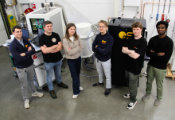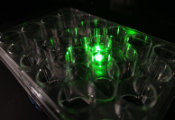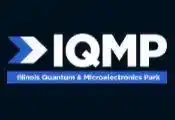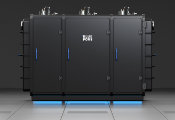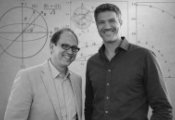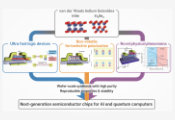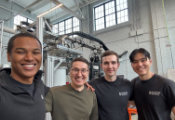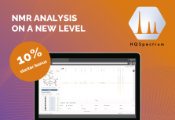Japan Tobacco and D-Wave Announce Quantum Proof-of-Concept Outperforms Classical Results for LLM Training in Drug Discovery
PALO ALTO, Calif., March 31, 2025 -- D-Wave Quantum Inc. (“D-Wave” or the “Company”), a leader in quantum computing systems, software, and services, and the pharmaceutical division of Japan Tobacco Inc. (“JT”) today announced the completion of a joint proof-of-concept project that used quantum computing technology and artificial intelligence (AI) in the drug discovery process. JT and D-Wave enhanced large language models (LLMs) with a quantum-hybrid workflow to increase their generative capabilities and enable JT to produce novel, more ‘drug-like’ molecular structures beyond those found in the training datasets for the quantum-hybrid generative AI system.
The work demonstrated that LLM hybrid models that used classical computation together with D-Wave’s quantum processing unit (QPU) resulted in more valid generated molecules when compared to classical methods alone. In addition, the molecules generated by QPU-assisted LLM training showed a higher quantitative estimate of drug-likeness compared to the training dataset and the models trained with classical computation-driven LLM training methods. This indicates that the QPU provided the teams with higher quality, lower energy samples, highlighting the potential benefits of quantum computing in generative AI for drug discovery.
The goal of this project is to accelerate the discovery of first-in-class small-molecule compounds while improving quality and speed in various processes. In this proof-of-concept, D-Wave’s annealing quantum computing technology was used in JT’s AI technology framework to train LLMs such as a transformer architecture — the same engine behind ChatGPT — for the exploration of chemical space. This enabled the teams to evaluate the feasibility of building a machine learning framework capable of handling a broader range of molecular properties and activities of compounds, which, in our view, initiates a new stage in the use of Quantum AI technologies for drug discovery. By combining AI and quantum computing technologies, the project further confirmed the potential for facilitating the small-molecule compound discovery process in both quality and speed of drug development.
“We are excited by the results we are seeing from our proof-of-concept project with D-Wave. In the experiment, with support from D-Wave’s professional services and product R&D teams, we utilized D-Wave’s annealing quantum computer to train JT’s AI model,” said Dr. Masaru Tateno, Chief Scientific Officer of Central Pharma Research Institute. “Our quantum-hybrid AI system shifted generated compounds to a more ‘drug-like’ molecular ensemble than the training dataset, without imposing any driving factors of molecular properties in our AI model. To the best of our knowledge, this is the first work for annealing quantum computation to outperform classical results concerning LLM training in drug discovery. This validation has also revealed that annealing quantum computing systems can deliver high quality, low energy samples that could drive enhanced performance in generative AI architectures. So, moving forward, with D-Wave’s quantum annealing machines, we aim to maximize the use of quantum computing hardware characteristics and accelerate our efforts in achieving Quantum AI-driven drug discovery.”
“AI has made impressive advancements but faces a computational challenge due to escalating power needs and costs,” said Dr. Alan Baratz, CEO of D-Wave. “Quantum computing’s integration with AI and machine learning could offer scalable, energy-efficient solutions to address these issues and potentially offer enhanced AI capabilities. We believe that our work with JT is an important demonstration and validation of quantum’s integration with AI. When used together, these powerful technologies can help customers build more efficient, rapid, and energy-saving AI and machine learning workloads. While we are just at the beginning of exploring Quantum AI’s potential impact, in our view, this work is a resounding step forward.”
Following the proof-of-concept project, the pharmaceutical division of JT plans to further advance the development of Quantum AI-driven drug discovery technology and then use quantum computing technology for molecular design.

